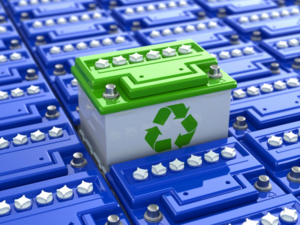
Rapidly increasing concerns regarding global air pollution and oil consumption have prompted a rise in the market of electric vehicles (EVs) which are capable of better energy efficiencies and lower carbon emissions than traditional combustion engines. Lithium-ion batteries are currently the primary technology in use; however, these present sustainability concerns due the limited availability of necessary components such as cobalt and nickel. Battery recycling plays an important role in the overall sustainability of the EV industry. Current research is focused on pyrometallurgical or hydrometallurgical methods. However, both present disadvantages in their large energy and material demands, reduced value of final products, and environmental and safety hazards. An alternative approach, called direct recycling, involves recovering functional electrode materials without decomposition into substituent elements. It is an energy efficient, cost-effective way to reclaim cathodes.
A proposal for a pilot-scale plant is introduced which will implement direct recycling technology to process lithium-ion batteries from primarily EVs and produce low cost, functional electrode material. To ground our calculations and equipment sizing, the plant is designed to process packs consisting of 2170 cylindrical cells, with nickel rich NMC or NCA cathodes, as popularized by Tesla and Panasonic. The pilot plant was designed in close collaboration with OnTo Technology, a start-up focused on direct recycling. The design contains several industrially scalable steps for (1) passivation and electrolyte extraction, (2) mechanical separations, (3) hydrothermal treatment of harvested cathode, (4) froth floatation, and (5) sintering. The pilot-scale plant design is capable of recycling over one ton of lithium-ion batteries a day. Component metal foils, usable cathode powders, other electrode materials, and stainless steel / separator scrap are separated and processed. Associated functions such as waste treatment, pressure relief, and other safety functions have also been designed.

